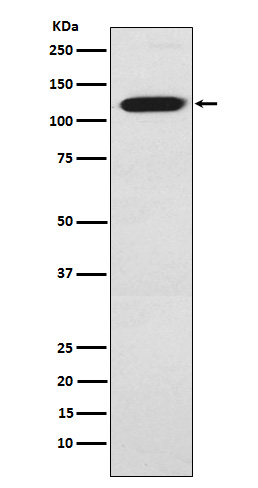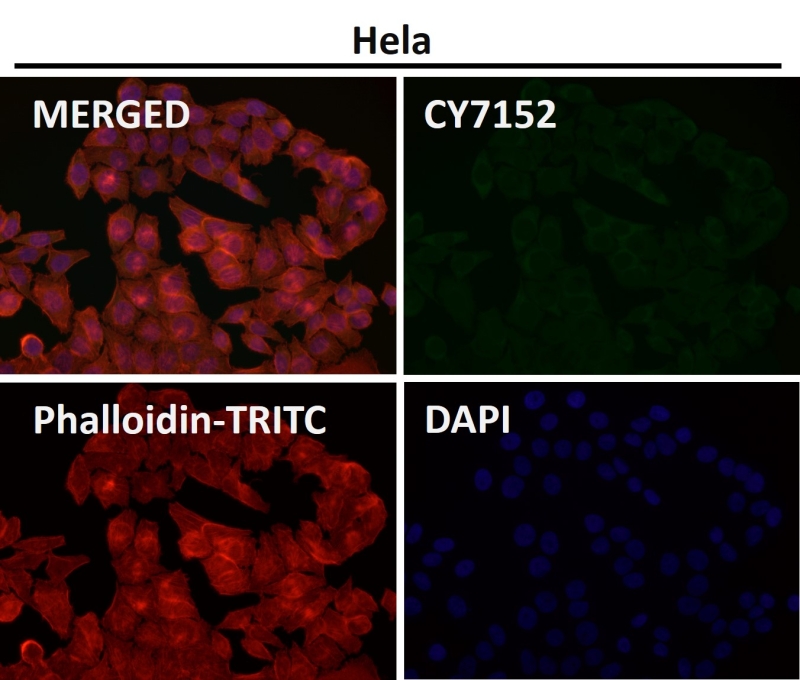

| WB | 咨询技术 | Human,Mouse,Rat |
| IF | 咨询技术 | Human,Mouse,Rat |
| IHC | IHC:1/100-1/200;IHF:1/50-1/200 | Human,Mouse,Rat |
| ICC | 1/50-1/200 | Human,Mouse,Rat |
| FCM | 1/20-1/100 | Human,Mouse,Rat |
| Elisa | 咨询技术 | Human,Mouse,Rat |
| Aliases | EVI9; CTIP1; ZNF856; HBFQTL5; BCL11A-L; BCL11A-S; BCL11a-M; BCL11A-XL;;BCL 11A |
| WB Predicted band size | Calculated MW: 91 kDa ; Observed MW: 120 kDa |
| Host/Isotype | Rabbit IgG |
| Antibody Type | Primary antibody |
| Storage | Store at 4°C short term. Aliquot and store at -20°C long term. Avoid freeze/thaw cycles. |
| Species Reactivity | Human,Mouse,Rat |
| Immunogen | A synthesized peptide derived from human BCL 11A |
| Formulation | Purified antibody in PBS with 0.05% sodium azide,0.05% BSA and 50% glycerol. |
+ +
以下是3篇与CTIP1(BCL11A)抗体相关的文献摘要信息,供参考:
---
1. **文献名称**: *BCL11A (CTIP1) controls the identity of post-mitotic dentate gyrus granule neurons*
**作者**: Simonet JC, et al.
**摘要**: 本研究利用CTIP1抗体通过免疫组化和染色质分析,揭示了BCL11A(CTIP1)在调控海马齿状回颗粒神经元成熟和突触功能中的关键作用,证明其缺失会导致神经元形态异常和认知缺陷。
---
2. **文献名称**: *BCL11A interacts with SOX2 to promote the stemness of lung cancer cells*
**作者**: Li Y, et al.
**摘要**: 通过Western blot和免疫荧光技术,研究证实CTIP1(BCL11A)抗体在肺癌干细胞中高表达,并与SOX2协同调控肿瘤干性维持和化疗耐药性,提示其作为潜在治疗靶点。
---
3. **文献名称**: *Antibody validation for BCL11A in human and mouse tissues*
**作者**: Wang X, et al.
**摘要**: 该文献系统验证了CTIP1抗体在人类和小鼠组织中的特异性,通过敲除实验和免疫沉淀证明其可靠性,并提供了在神经发育和血液系统研究中的应用实例。
---
4. **文献名称**: *CTIP1 regulates dendritic morphogenesis in cortical neurons*
**作者**: Arlotta P, et al.
**摘要**: 利用CTIP1抗体进行免疫染色,研究发现CTIP1通过调控下游靶基因(如Tbr1)参与皮层神经元树突发育,其表达异常与自闭症模型小鼠的行为缺陷相关。
---
提示:若需具体文献链接或补充信息,建议通过PubMed或期刊数据库输入标题/作者进一步检索。
×